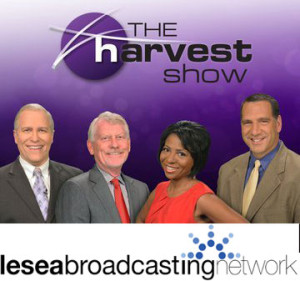Pastoral listening requires unhurried leisure, even if it’s only for five minutes. Leisure is a quality of spirit, not a quantity of time. Only in that ambiance of leisure do persons know they are listened to with absolute seriousness, treated with dignity and importance. Speaking to people does not have the same personal intensity as listening to them. The question I put to myself is not “How many people have you spoken to about Christ this week?” but “How many people have you listened to in Christ this week?” The number of persons listened to must necessarily be less than the number spoken to. Listening to a story always takes more time than delivering a message, so I must discard my compulsion to count, to compile the statistics that will justify my existence.
—Eugene H. Peterson
The Contemplative Pastor: Returning to the Art of Spiritual Direction
Christians should be the first to insist on the primacy of in-person relationship. We worship a God who took in-person relationship seriously—so seriously that he was born incarnate to an unwed mother in the backwaters of an ancient Roman province to get close to us. In response to Jesus’s life, death, and resurrection, early believers formed intimate communities of solidarity and self-sacrifice, where leaders lived in proximity with their followers. They met together daily, pooled their resources to provide for those in need, and ate together in their homes, “with glad and sincere hearts” (Acts 2:46). At its best, the local church is the place where loneliness and isolation are replaced with real, vulnerable relationships—for leaders as well as for members. So why do Christians keep putting people on pedestals, asking them to fulfill their own parasocial needs? Why do we turn our leaders into untouchable personas rather than letting them live and serve as their true, beloved selves? Why do our icons so easily become idols?
—Katelyn Beaty
Celebrities for Jesus: How Personas, Platforms, and Profits Are Hurting the Church
We are magnets for “likeness” but Jesus was a magnet for “differents.” God invites us to go where we ordinarily would not desire to go. To show interest in people we usually feel polarized against.
—Dan White Jr.
Love over Fear: Facing Monsters, Befriending Enemies, and Healing Our Polarized World
We can all be new creations if we want to be. The cold hard truth is most people don’t. We settle for the safe and distracted life we know rather than the one God has promised is available to us. Sure, we can agree that Jesus wants us to be new creations, but if we keep doing what we’ve always done, we’ve got to admit there’s nothing new about it. A total reset isn’t easy, and it involves risk. Maybe an enormous tragedy or loss causes us to reset. Or a reset might be the result of making time to clear our minds in the morning. Find a new rhythm for your heart. Here is my simple suggestion: Decide in advance that you will do whatever it takes to get your heart right, and then do it—even if it will kill all previous versions of you.
—Bob Goff
Undistracted: Capture Your Purpose. Rediscover Your Joy.
The Bible tells us Jesus wept. His closing confession or prayer or reflection on the cross was from our Psalm 22—did He learn that poetic prayer as a child? Do not deny your sadness or avoid conversations about who or what you have lost. Welcome the time when everything seems out of balance. Because, in many ways, it is.
Do not expect grief to end a certain way on a specific date. It might lighten, then return stronger and more painful. Receive grief as a process, a journey, an adventure. Receive grief as therapy. Journal your thoughts. Contact a counselor or friend. Pray. Realize your life is on uneven surfaces and that God is with you in the grieving. Also remember that grief does not only occur after the death of someone you love. It can be related to a drastic change of a person, a situation, yourself, or life in general. Again, find the right people to talk to.
—Chris Maxwell
Equilibrium: 31 Ways to Stay Balanced on Life’s Uneven Surfaces









